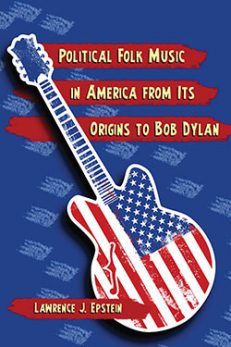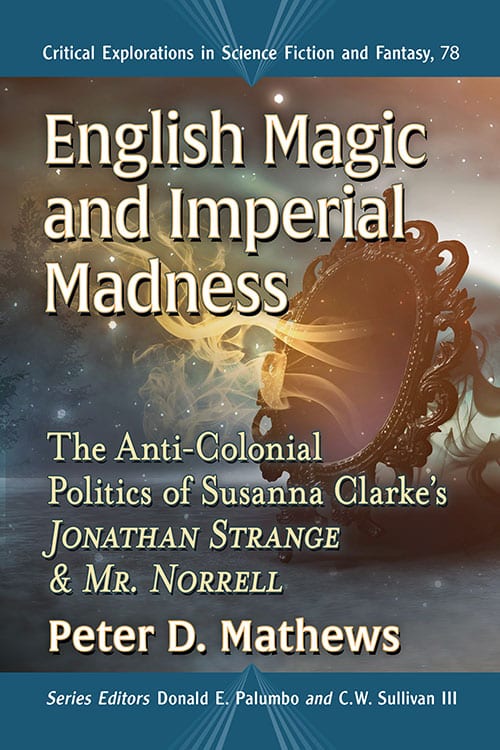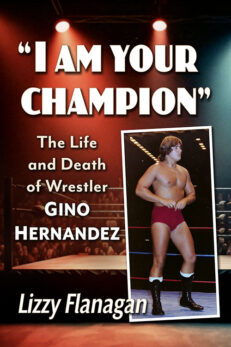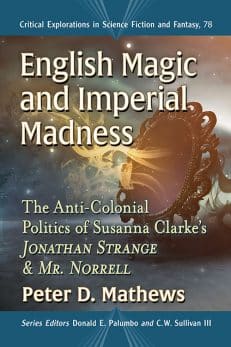Subtotal: $23.99
English Magic and Imperial Madness
The Anti-Colonial Politics of Susanna Clarke’s Jonathan Strange & Mr. Norrell
Original price was: $39.95.$31.99Current price is: $31.99.
In stock
About the Book
Regency England was a pivotal time of political uncertainty, with a changing monarchy, the Napoleonic Wars, and a population explosion in London. In Susanna Clarke’s fantasy novel Jonathan Strange and Mr. Norrell, the era is also witness to the unexpected return of magic. Locating the consequences of this eruption of magical unreason within the context of England’s imperial history, this study examines Merlin and his legacy, the roles of magicians throughout history, the mythology of disenchantment, the racism at work in the character of Stephen Black, the meaning behind the fantasy of magic’s return, and the Englishness of English magic itself. Looking at the larger historical context of magic and its links to colonialism, the book offers both a fuller understanding of the ethical visions underlying Clarke’s groundbreaking novel of madness intertwined with magic, while challenging readers to rethink connections among national identity, rationality, and power.
About the Author(s)
Bibliographic Details
Peter D. Mathews
Series Editors Donald E. Palumbo and C.W. Sullivan III
Format: softcover (6 x 9)
Pages: 178
Bibliographic Info: bibliography, index
Copyright Date: 2021
pISBN: 978-1-4766-8627-1
eISBN: 978-1-4766-4494-3
Imprint: McFarland
Series: Critical Explorations in Science Fiction and Fantasy
Table of Contents
Acknowledgments ix
Preface 1
Prologue: Merlin’s Legacy 5
A Mystic Robe of Midnight Blue 5
The Mythological Magician 9
Merlin’s Imperial Legacy 15
Chapter 1. The Fantasy of a Return 23
The Modern Fantasy of Return 23
The Englishness of English Magic 30
Magic’s Persistence 38
Chapter 2. Writing, Text, Mythology 43
All the Texts of the World 43
The Man Who Was Also a Book 47
Writing History, Writing Fiction 56
Chapter 3. An Artificial Myth 63
Dual Perspectives 63
The English Malady 69
Mythologies and Evasions 76
Chapter 4. Through the Looking-Glass 85
The Paper Mirror 85
The Monarch and the Mirror 90
The Nameless Slave 97
Chapter 5. Imperialism’s Magic Helper 105
Anthropology and Unreason 105
The Illusionist’s Mission 109
The Magic Helper 115
Chapter 6. The Reason of Unreason 123
Magic and Madness 123
Reason’s Double 126
Reason and Unreason 134
Epilogue: New Constellations 143
The Starry Heavens 143
Endless Night 147
Beyond Disenchantment 150
The Sky Speaks 153
References 159
Index 165
Book Reviews & Awards
• “In a dazzling new reading, Peter D. Mathews reveals Susanna Clarke’s Jonathan Strange and Mr. Norrell as exposing myths of British self-satisfaction and enacting a destabilizing, exhilarating ‘change in the night sky’ of the world we think we know. This is first-rate criticism that opens a wonderful book to its readers as never before.”—Nicholas Birns, instructor, NYU Center for Applied Liberal Arts
• “With Jonathan Strange and Mr. Norrell, Susanna Clarke managed to combine the forms of the historical novel and modern fantasy, evoking the realities of Europe in the time of Napoleon and Lord Nelson alongside wizardry and wild romance, and making both come vividly to life. Peter D. Mathews’s English Magic and Imperial Madness is a study worthy of this achievement, as it evinces deep literary and philosophical scholarship while artfully connecting an analysis of the powers of fantasy with an anti-colonial politics. Thus, Mathews effectively shows how modern fantasy literature can profoundly affect our understanding of the world and its history. It is a remarkable achievement, and a must-read for scholars of fantasy and of world literature more broadly.”—Robert T. Tally Jr., professor of English, Texas State University
• “Peter D. Mathews weaves some magic of his own in English Magic and Imperial Madness, his spellbinding analysis of the “anti-colonial politics” of Susanna Clarke’s brilliant Jonathan Strange and Mr. Norrell. Triangulating sorcery, insanity, and political power, Mathews adeptly situates Clarke’s novel within the contexts of English history, literature, and culture, equipping the reader with the background necessary to appreciate Clarke’s critique of British imperialism. Mathews’ erudite consideration of myth, magic, fantasy, and politics will serve as the indispensable grimoire for those seeking to unravel the mysteries of Clarke’s rich fantasy novel.”—Jeffrey Andrew Weinstock, professor of English, Central Michigan University

 Political Folk Music in America from Its Origins to Bob Dylan
Political Folk Music in America from Its Origins to Bob Dylan 




